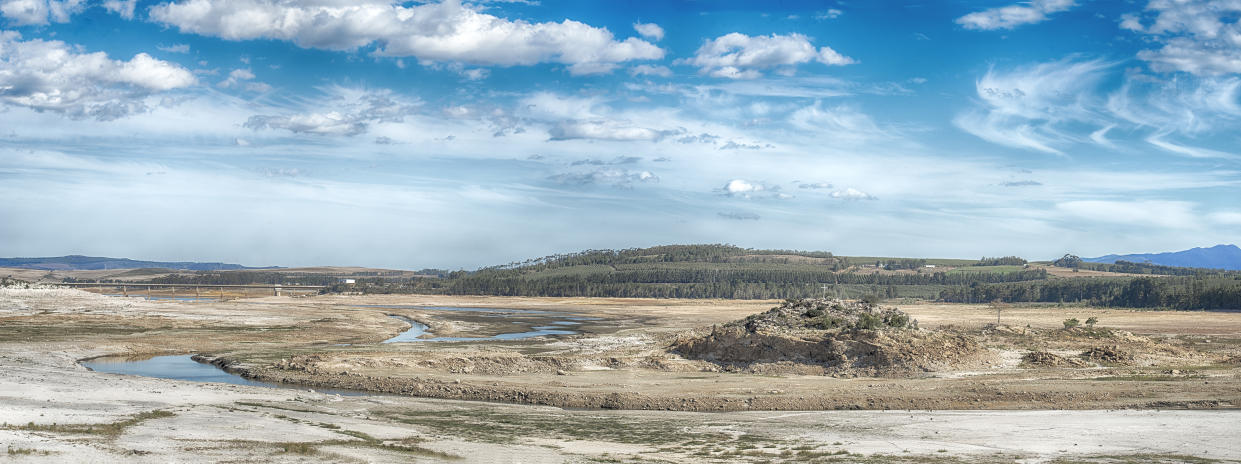Quarter of world at risk of ‘Day Zero’ where water runs out altogether, experts warn

Millions of people - up to a quarter of the world’s population - are just a few dry spells away from potentially deadly water shortages, a U.S. think-tank has warned.
Such shortages could lead to countdowns to water 'Day Zero', such as in South Africa's Cape Town last year and Brazil's Sao Paulo in 2015, World Resources Institute (WRI) said
Seventeen countries face 'extremely high water stress' because they consume 80 percent of their available water annually.
Many of those affected live in India, and the crisis is being exacerbated by climate change, the WRI warned.
‘We're currently facing a global water crisis,’ said Betsy Otto, director of WRI's global water program.
READ MORE FROM YAHOO NEWS UK
Brave hairdresser fights off moped raiders with shop sign
8chan: The website that gives mass shooters a voice
Thug who stabbed police dog in the head is jailed in UK legal first
'We're likely to see more of these kinds of “Day Zeros” in the future.’
New data in WRI's Aqueduct Water Risk Atlas showed the lion's share of the most thirsty countries are located in the largely arid Middle East and North Africa region.
Qatar is the most water-stressed country, followed by Israel and Lebanon.

India ranked 13th among 'extremely high' water-stressed nations. But with a population of more than 1.3 billion, it has over three times more people than the other 16 countries combined whose agriculture, industry and municipalities depend on avoiding water 'bankruptcy'.
In recent weeks, India's sixth-largest city, Chennai, was the latest metropolis worldwide to warn its taps could run dry, as reservoir levels plunged.
The world's water supplies are threatened by many factors, from climate change to mismanagement in the form of water waste and pollution, Washington-based WRI said.
A high reliance on depleting groundwater supplies - difficult to measure and manage because they are buried deep - is an additional concern, Paul Reig, who leads work on the Aqueduct Water Risk Atlas, told journalists.
Nearly a third of the world's fresh water is groundwater, according to the United States Geological Survey.
'Because we don't understand (groundwater), and don't see it, we manage it very poorly,' Reig said.


